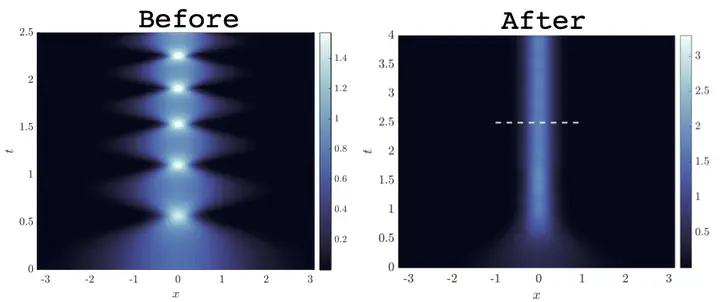
Abstract
Applications of Bose-Einstein Condensates (BEC) often require that the condensate be prepared in a specific complex state. Optimal control is a reliable framework to prepare such a state while avoiding undesirable excitations, and, when applied to the time-dependent Gross-Pitaevskii Equation (GPE) model of BEC in multiple space dimensions, results in a large computational problem. We propose a control method based on first reducing the problem, using a Galerkin expansion, from a PDE to a low-dimensional Hamiltonian ODE system. We then apply a two-stage hybrid control strategy. At the first stage, we approximate the control using a second Galerkin-like method known as CRAB to derive a finite-dimensional nonlinear programming problem, which we solve with a differential evolution (DE) algorithm. This search method then yields a candidate local minimum which we further refine using a variant of gradient descent. This hybrid strategy allows us to greatly reduce excitations both in the reduced model and the full GPE system.